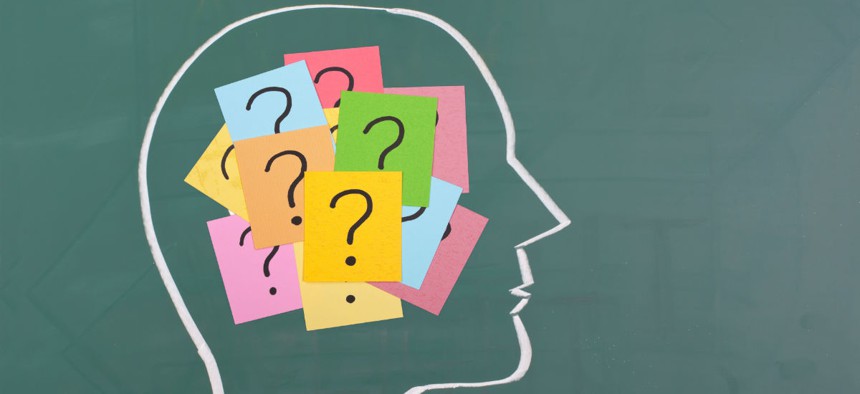
The Neuroscience of Asking Insightful Questions
When you solve problems for the people who report to you, you rob people of the chance to do their own thinking.
I teach coaching skills to leaders. When I get to the section on how to ask questions (an important part of learning to coach) I might ask a trick question to start off: “How many of you are good at solving problems?” Without fail, almost all hands shoot enthusiastically into the air.
There’s nothing wrong with being good at problem solving. Except when it gets in the way of preventing the people you lead from learning and developing. Because when you solve problems for the people who report to you, those people don’t get a chance to do their own thinking or take ownership of the solutions you’ve handed them. Creativity becomes stunted and learning is stalled because those very smart people you lead don’t get to think on their own.
Asking an insightful question instead helps them to focus on what they want to do. When that insight happens, they can move forward with clarity and commitment.
There are plenty of reasons to ask more questions like “What would you do?” or “What possibilities do you see here?” These are open-ended, thought-provoking questions, not solutions disguised as questions. The most compelling reasons to ask rather than tell may be grounded in neuroscience.
Here is the short version of what happens when you ask an insightful question of one of your employees:
Neuroplasticity: The first thing you need to know is that the brain isn’t hardwired like an electrical appliance. If it was, people would be stuck doing things the way they’ve always done them forever. Enter something called neuroplasticity, which means our brains can physically change to encourage creative thinking and new knowledge. The neurons can move into new locations in our brain when we learn. Questions can act as a catalyst for our brains to change and move forward with new insight.
Reflection: When you ask a question instead of giving the answer, the entire brain gets active as it reflects, releasing serotonin (allowing it to relax). This encourages gathering intelligence from all areas of the brain, allowing for more insight than would happen if you provided solutions to others. New neuronal connections begin to be made as the brain moves closer to finding solutions.
Action: As serotonin is released, a rush of energy (or insight) occurs as the brain fires up, moving ahead and discovering the solutions to a problem. The person who is the recipient of the question becomes motivated and ready to do something. This burst of energy to take care of the problem is short lived, so you can help by asking them to commit to doing something later. And then you can ask them how they’ll stay accountable to their commitment.
When someone is stuck, ask an open-ended, insightful question. The brain becomes activated, and will find the best way to help it to discover the solution. And the funny thing is, it might be even better than one you would have thought of. Brilliant.






